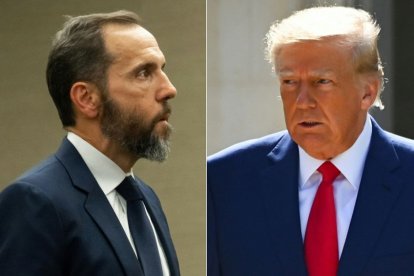Jack Smith continues to pressure the judges: the special counsel is now pushing the Supreme Court to reject Trump's presidential immunity
Donald Trump called for Smith to be punished for his criticism of the judge handling the Mar-a-Lago papers case.

AFP












